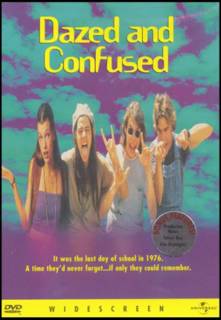State of Play II | Reloaded
I'm off to the State of Play II | Reloaded conference.
Here are some buttons I picked up in Union Square, NYC.



This is sad. Judges are supposed to be among the best and most professional legal practitioners, so when they do something like this it embarrasses the entire profession. On the other hand it is pretty funny. This sort of stuff could only happen in Texas (I lived there briefly, I know).
Awww...poor guy. His life sentence was for choking his girlfriend unconscious so I'm assuming it was attempted murder plus a spate of other charges in addition to having some old convictions. Was this cruel and unusual punishment? Certainly the point was the mock the defendant, but I've heard of worse and stranger punishments than this.A judge threw a party complete with balloons, streamers and a cake to welcome a former fugitive back to her court -- and sentence him to life in prison. "You just made my day when I heard you had finally come home," Criminal Courts Judge Faith Johnson told Billy Wayne Williams, who had been convicted in absentia of aggravated assault after he disappeared a year ago. "We're so excited to see you, we're throwing a party for you."
...
Before he was brought into the courtroom on Monday, the judge directed staff members as they placed balloons and streamers around the courtroom. A colorful cake was decorated with his name and one candle to signify the year he spent on the lam.
"It seems like everyone wants to have a party, and it's fun for you people, but not for me," Williams told reporters as he was led away in handcuffs.
Article here: CNN.com - Judge throws party, hands down life sentence - Oct 26, 2004
A judge who welcomed a former fugitive back to her courtroom with balloons, streamers and a cake defended her actions Wednesday, saying that getting a killer and abuser of women off the streets is reason to celebrate.CNN article - Judge defends courtroom party for prisoner
The Induce Act Blog is doing rather well these days. We are getting nearly 2000 hits a day now! Also, Google News has reviewed the blog and is going to start including it in their service, legitimization...love it. In addition to all this we have added a patent expert, Stephen Nipper of Invent Blog to the mix. Since the Induce Act is stalled for the moment we will be expanding our topic area.
In case you are thinking about starting up a law blog (or any blog really), or have one that you'd like to improve, here are some helpful hints:
Why the hell am I still in school and why didn't anyone ever tell me about this? I could've save a boat load of cash!
This is old news (which means over a few days old for the blogosphere) but the idea is so cool that I have to post it.
BBC NEWS Technology Visionaries outline web's futureThe idea of access for all was put forward by visionary Brewster Kahle, who suggested starting by digitally scanning all 26 million books in the US Library of Congress.
His idea was just one of many presented at the Web 2.0 conference in San Francisco that aims to give a glimpse of what the net will become.
...
Brewster Kahle's idea is to scan as many books as possible and put them online so everyone has access to that huge amount of knowledge. In his speech, Mr Kahle pointed out that most books are out of print most of the time and only a tiny proportion are available on bookshop shelves. Using a robotic scanner, Mr Kahle said the job of scanning the 26 million volumes in the US Library of Congress, the world's biggest library, would cost only $260m (£146m). He estimated that the scanned images would take up about a terabyte of space and cost about $60,000 (£33,000) to store. Instead of needing a huge building to hold them, the entire library could fit on a single shelf. The Web 2.0 conference was held in San Francisco from 5-7 October.
Google recently released their new Google Desktop Search. I've been using the program since its release and I really like it. It indexes all the files on your computer and allows you to search the whole hard drive extremely quickly. It's really nice to be able to do internet-style quick searches for specific words in all your word docs, email, AIM conversations, and web history. Whenever you want to recall some blog post or article you've seen you can just type in a keyword and find it in seconds.
The WaPo reviews the new service in today's paper in which they call it "another free program that fixes [a] glaring weakness of Windows: its woeful file-searching capabilities." The reviewer has had a similar experience to my own:...not only indexes the full text of e-mail messages and word processing documents, but also gives people the option of creating a searchable archive of all Web pages they visit and all instant messages they send and receive with AOL software...
Google's new product is "very, very good," said Danny Sullivan, editor of searchenginewatch.com, an online newsletter that tracks the search engine industry. Sullivan said he has been testing Google's search tool and found one of its most useful features to be the way that it stored a copy of all the pages he visited online and then made that personal Web surfing history available to him.
But as usual there are some privacy concerns similar to those that were all the rage to worry about when Gmail came out -This indexing has yet to have any detectable effect on the performance of two PCs I've put Google Desktop on, despite its ludicrous speed. New e-mails turned up in Google Desktop's search results within six minutes of their arrival, and freshly viewed Web pages were indexed even faster, within about 10 seconds.
Since Google Desktop's index is updated so often, it also tracks changes to text and Microsoft Office files. Click a file's name in a Google Desktop window to open that file in whatever program created it; click the "cached" link to view older versions within your browser window. Only the text of them appears, which works fine for most Word and text documents; Excel and PowerPoint files, however, usually look like gibberish without their formatting and graphics.
One thing to watch for, if you share a computer with other people: Google Desktop's searches will encompass everyone's data unless you adjust its preferences to exclude it from some folders or file types. Likewise, if you see Google Desktop running on a computer you're about to borrow, you'd be wise to click its taskbar icon (a rainbow-colored swirl) and select "pause indexing" to stop it from tracking your own use.But as usual, some people are more worried about loss of privacy than others -
...the omniscient-seeming search engine Google bested itself by announcing a service to probe for information both online and in your own machine. One company official called it a "photographic memory for your computer."Since this indexing/uploading of hard drive information is really the only reason to think twice about downloading the Google Desktop Search program, here's what one WaPo writer had to say about the privacy issue:
Google says no personal information will be sent back to the company. But if it feels like you can't do anything these days without someone looking over your shoulder, you're not just paranoid..."It's important," Brin said, "to remain calm."
Once the Google search technology is installed for free on a personal computer, it will transmit basic data daily about usage patterns. For example, it will tell the company how often Google is being used to search personal computers, how often it is used to search the Web, and how often simultaneous searches are done. Google lets users opt out of sending some usage data, but not all of it.So the main concern appears to be people in your home or business misusing the program to snoop on you, not Google itself misusing the info. So, I guess in the end it depends how concerned you are with privacy and how little you trust the people/companies around you to snoop. For the personal home computer at least, this is an extremely useful tool.
However, Mayer said the data collected will be aggregated so that the company knows where to focus its efforts on upgrading the search technology. She emphasized that the daily up-loading will not transmit any personal information to Google and said it is typical for major software programs that offer voluntary upgrades and fixes for bugs to capture that sort of information as a matter of routine.
"This is the most personal information Google has ever dealt with," Mayer said of the new desktop search technology. "We take user privacy and user trust very seriously. And we have throughout the entire development of this product."
To enable users to maintain the confidentiality of files on their personal computers, or to permit them to keep their Web surfing destinations a secret, the new desktop search tool lets people block it from archiving visits to specific Internet sites, or from accessing private or confidential information stored on a P.C. In addition, there is a 15-minute snooze bar that allows a user to temporarily turn the archiving feature off if, for example, someone wants to do online shopping for a family member or friend and keep it a secret.
Gary Price, a search specialist who runs a Web reference site called ResourceShelf.com, noted that the new archiving capability could raise privacy issues by making it easier for people to search and find material on other people's computers when they step away from their desks. That could be troubling in the workplace where people often leave their desks unattended, he said: "In a couple of minutes, people can search your entire computer and find anything in any one of your documents."
Here's the Week 6 Blawger Bowl memo, just in time to get us all worked up for Week 7:
There's an article out about Creative Commons. If you don't know what CC is, go read the article and then check out the Creative Commons website. CC needs more public attention.
An interesting copyright law related project with worrisome results.
Members of the Bits of Freedom group conducted a test to see how much it would take for a service provider to take down a website hosting public domain material. They signed up with 10 providers and put online a work by Duthc author Multatuli, who died over 100 years ago. They stated that the work was in the public domain, and that it was written in 1871. They then set up a fake society to claim to be the copyright holders of the work. From a Hotmail address, they sent out complaints to all 10 of the providers. 7 out of 10 complied and removed the site, one within just 3 hours.Boing Boing: HOWTO censor the net with a Hotmail account

One plaintiff, Bobby Wooderson, for example, recently checked his teenage son into Harvard University, and when the boy's classmates learned Wooderson was the basis for the pot-smoking "David Wooderson" in "Dazed and Confused," "all the kids there wanted to do was smoke pot with him," said Santa Fe attorney Bill Robins III, who filed the suit.Despite the fact that Linklater has said in interviews that "Dazed and Confused" was fairly autobiographical, there's little chance this case will go anywhere if it is based in libel, partly because no reasonable person who saw "Dazed and Confused" would assume that the depictions in it are based on actual events, it's a work of fiction, a movie. These guys are wasting everyone's money with this suit and not only that, they will actually draw national attention to the embarrassing fact that they may have been cool pot smoking rockers in the 70's that were so much fun that a movie was made based on the good times they had. Man that really is embarrassing, I feel so sorry for them!
...
Linklater, who wrote and directed "Dazed and Confused," only slightly modified the three plaintiffs' names...Plaintiff Bobby Wooderson is named David Wooderson in the movie; plaintiff Andy Slater is named Ron Slater in the movie; and plaintiff Richard "Pink" Floyd is named Randall "Pink" Floyd in the movie.
...
"Dazed and Confused" depicts Wooderson - who was played by actor Matthew McConaughey - as an "aging high school wannabe with the bad ass car, who despite graduating years ago, can't leave his high school 'daze' behind him," reads the suit.
...
The Wooderson character also says in the movie, "that's what I love about these high school girls; I get older and they stay the same age." Robins said the real-life Wooderson has never said any quote of that nature.
...
Slater is depicted as the 'school's in-house stoner and medicine chest,' '' reads the suit.
...
Richard "Pink" Floyd, is depicted in "Dazed and Confused," as "the school's starting quarterback, supposedly struggling with the choice between signing a pledge to not use drugs and alcohol or hanging out with his loser friends,' '' reads the suit. [Sounds to me like the plaintiffs are now Linklater's loser former friends.]

This will be the fourth person to hold this position in four years. Richard Clarke, Howard Schmidt, and Amit Yoran have also held the position. There is currently a bill working its way through the House that would elevate this position to one just below Tom Ridge, which would of course give the cyber security department and its chief much more clout within the Dept. of Homeland Security.
"The post was left vacant by the sudden resignation of Amit Yoran a week ago. Reports suggested he left because his team was not given enough clout within the Department of Homeland Security. The new acting head of the National Cyber Security Division is Andy Purdy, the former deputy director. "
...
[His] task is to work out how to protect US networks from disruption by the viruses, worms and hack attacks that have become commonplace.
...
[Yoran's] sudden resignation, giving only a day's notice, led to suggestions that he felt frustrated by the lack of prominence given to cyber security in the wider homeland organisation.
I know this is fairly old news, but I've been getting slammed with work. Anyway, the new Intellectual Property Political Action Committee (IPAC) is a very exciting concept. IPac is working to educate politicians on IP issues and signing them on to their principles of consumer and innovation friendly IP law. Check here to see which candidates are public interest friendly when it comes to IP issues.
WIPO has typically been viewed as a forum for IP maximalists such as US content producers. It has been a place where international agreements have been made that would later be used to pressure countries into accepting a US version of IP law, or even to pressure the US Senate into enacting harsher IP law. Copyfight and Cory Doctorow are very excited about some recent changes at WIPO.
 <
?
law blogs
#
>
<
?
law blogs
#
>
